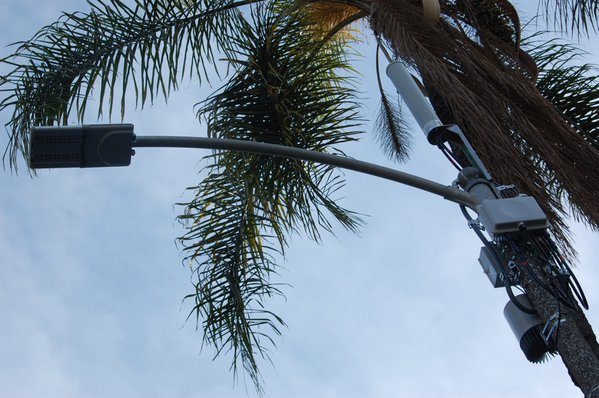Mobilitie President Christos Karmis says the company plans to use its own name as it works with cities and counties to develop small cell sites, and will rely less on subsidiary names in the future. Over the past several months, attorneys who represent city governments have noticed Mobilitie conducting business under various names, most of which characterize the infrastructure provider as a utility company.
Mobilitie has been developing sites for Sprint’s small cell build out for almost a year, and during this time has used a number of different names in different places. New companies with the name “utility pole authority” appeared in Arizona, California, Minnesota, Oregon and Wisconsin, and share an address or a name with Mobilitie.
As a registered competitive local exchange carrier in all 50 states, Mobilitie has many of the same rights a utility has when it comes to building or attaching in the public rights of way. However, the company still needs to obtain the necessary permits before its contractors get to work. Some attorneys think Mobilitie used the subsidiary names to expedite the permitting process by characterizing itself as a public utility.
“Why else would you pick a name like that?” asked consultant Steve Blum of Tellus Venture Associates, who assists local governments in negotiations with telecom companies. “The only reason I can think of is that they’re trying to slip something past somebody.”
Karmis said that in “about 99% of the cases” Mobilitie has followed permitting procedure, but that competitors have been quick to capitalize on the company’s missteps by publicizing those instances when contractors did not follow the rules.
In the county of Prince William, Virginia, the Department of Public Works issued a violation notice that stated: “A utility pole has been installed without zoning approval by Mobilitie near the intersection of Shoppers Best Way and Prince William County Parkway in Woodbridge Virginia.” The department threatened to file criminal charges if Mobilitie did not remove the pole or obtain the necessary permits. In Baltimore, Mobilitie was fined $5,000 for excavating a street without a permit.
Mobilitie CEO Gary Jabara said a fine of that size can double the cost of a small cell for Mobilitie. He sees Mobilitie’s low-cost solutions as a disruptive force in the industry, one that established players may want to quell by highlighting the company’s infractions.
“We do an inordinate amount of work around the country and nobody’s perfect,” said Jabara. “Cities can be very complex, and people just have to do a great job and contractors have to do a great job.”
Follow me on Twitter.

Mobilitie to increase transparency for jurisdictions
ABOUT AUTHOR
